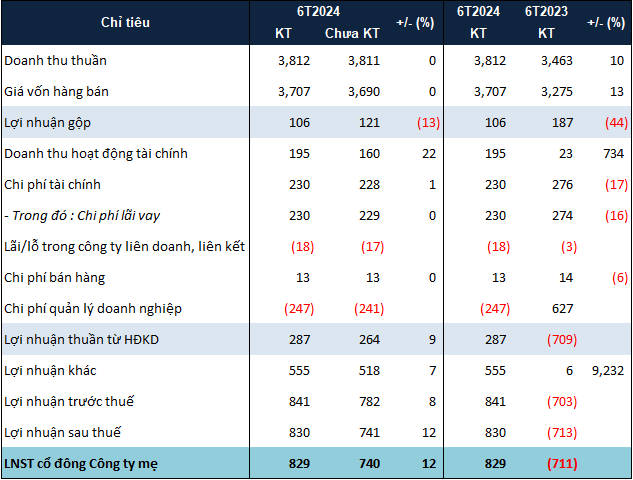The issuance of a series of policies in May 2025, including Resolution 68-NQ/TW of the Politburo on private economic development, Resolution 198 of the National Assembly on special mechanisms and policies for private economic development, and Resolution 139 of the Government on the plan to implement several special mechanisms and policies for private economic development, has demonstrated the strong commitment of the Party, State, and Government to fostering the private sector – the most important driver of the economy.
At the seminar “Unblocking Institutional Bottlenecks – Unleashing Private Sector Resources” organized by the Vietnam Television Center in Ho Chi Minh City on May 27, the speakers shared the view that institutional reform is the fastest way to develop the private sector. However, the delegates also emphasized that achieving this requires strong collaboration between the State and businesses.
ADDRESSING INSTITUTIONAL BOTTLENECKS
Sharing international experiences, expert Nguyen Xuan Thanh from the Fulbright School of Public Policy and Management at Fulbright University Vietnam affirmed that the common denominator among all economies sustaining robust growth is a robust and central private sector.
However, according to Mr. Thanh, the private sector demands an efficient market economy with a highly competitive business environment. Hence, the State plays a catalytic role in building supportive institutions, addressing market bottlenecks. To accelerate growth, we must “unshackle” the economy.

“From resolutions to actions, we need the strong involvement of both the State and businesses. With the right policies in place, the private sector will thrive and become a solid pillar of the economy.”
Resolution 68-NQ/TW on private economic development is a “shock” to the tech community as it accurately identifies the challenges faced by startups, including access to capital and reducing unnecessary costs.”
Concurring with this view, Mr. Nguyen Ba Diep, co-founder of the MoMo Financial Technology Corporation, also believes that institutional reform is the fastest, most effective, and “least expensive” way to support businesses. He emphasized that Resolution 68-NQ/TW on private economic development is a “shock” to the tech community as it accurately identifies the challenges faced by startups, including access to capital and reducing unnecessary costs.
Representing the Ho Chi Minh City Business Association (HUBA), Mr. Dinh Hong Ky stressed the need for institutions to effectively ensure and protect private enterprises’ property rights, freedom to do business, asset rights, and competitive equality, as well as contract enforcement. He advocated for a level playing field, reducing administrative barriers and eliminating the “permit-granting” mindset and “if you can’t manage it, ban it” approach. Concerning the legal environment, it is essential to clearly distinguish between criminal and administrative or civil liability and between legal entities and individuals in violation handling.
From the business perspective, Ms. Nguyen Thanh Huong, Investment Director of Nam Long Group, shared: “Private enterprises in the real estate sector yearn for a transparent, fair, and open competitive environment and access to land resources, as land plays an incredibly crucial role for real estate, urban, and housing developers. We hope for the institutionalization of land fund development.”
Ms. Huong acknowledged that the suspension of numerous real estate projects over the past three to four years has hindered expected foreign investment inflows. Meanwhile, many international partners remain keen on the Vietnamese market and are willing to invest for the long term.
“We eagerly await the concrete implementation of these policies. Once the resources are unblocked, participating in large-scale projects such as transit-oriented development (TOD) will become more feasible. Nam Long and our partners are ready to engage if the mechanisms are transparent and timely,” emphasized Ms. Nguyen Thanh Huong.
PROMPT POLICY IMPLEMENTATION FOR PRIVATE SECTOR DEVELOPMENT
Mr. Nguyen Dinh Tung, General Director of Import-Export T&T Vina Group, pointed out the reality faced by agricultural businesses: “if you can’t control it, ban it,” which constrains many initiatives and investment desires. “While we have progressive resolutions, they need to permeate into daily life for businesses and people to ‘absorb’ them. I hope for swift institutionalization at the implementation level,” he added.
Echoing this sentiment, Mr. Nguyen Xuan Thanh asserted that Vietnam urgently needs to reignite growth. The supportive policies for the private sector are in place, but effective implementation and concrete institutional breakthroughs at the grassroots level are crucial.
Mr. Thanh identified a challenge in implementation: the authority of executive agencies to issue regulations; specifically, the reluctance to enforce them after promulgation. “How can we empower state management agencies and market regulators with special budgets, financial autonomy, and flexible human resource mechanisms to attract talented individuals? At the same time, policies should delegate authority to implementing officials to avoid a vicious cycle,” he questioned.

“Most small and medium-sized enterprises struggle to access capital due to a lack of collateral and financial opacity. To address this ‘bottleneck,’ we can establish a reputable national credit rating system, and SMEs themselves need to ensure financial transparency and form collateral assets. Additionally, banks should improve their approach to customer engagement and adjust their risk appetite to match reality.”
Regarding land, Mr. Thanh suggested re-exploiting unused public land, supporting businesses in leasing land in industrial parks and technology incubators, especially for small, high-tech, and innovative startups. As for investment capital, it is essential to diversify credit channels, unblock the corporate bond market, and amend the Law on Supporting Small and Medium-Sized Enterprises to simplify procedures, expand the scope of support, avoid the “permit-granting” mindset, and refrain from creating additional cumbersome supervisory apparatus.
From a banking perspective, Mr. Tu Tien Phat, CEO of ACB, suggested that the management agency first tightly control lending activities serving the internal ecosystem to ensure the safety of the financial system and release “real capital” for the private sector. He emphasized diversifying credit channels through both banks and non-bank financial institutions. Additionally, mechanisms and policies should be put in place to unblock the corporate bond market, and the Law on Supporting Small and Medium-Sized Enterprises should be amended to expand the scope of support and simplify procedures for businesses to access preferential capital from the State.
“In fact, banks are eager for businesses to access loans for production and business activities, but there are still ‘barriers’ in accessing capital, requiring more open mechanisms and policies,” Mr. Phat added.
“Vietnamese Private Sector: No Need for Praises, Just Treat Them as the Norm”
The private sector in Vietnam has faced numerous challenges, but the introduction of Resolution 68 has been a game-changer. This pivotal resolution has unlocked a world of opportunities, acting as a key to overcoming obstacles and paving the way for remarkable growth and transformation within the private sector. It has truly been a catalyst for shaping the nation’s economy and fostering a thriving business environment.
Breakthrough Institutional Reforms and Meaningful Actions: Unlocking Private Sector Growth
On May 27, an insightful discussion forum titled “Unblocking Institutional Bottlenecks – Unleashing Private Sector Resources” was held to reflect on policies, address challenges, and forge meaningful actions pertaining to Resolution 68.
A Transparent Business Environment: Unlocking Opportunities and Raising Expectations
Resolution 68-NQ/TW of the Political Bureau on the Development of the Private Economy (Resolution 68) is expected to be a historic turning point, ushering in a robust growth phase for Vietnam’s private sector. To realize this immense potential, a prerequisite is to establish an extremely conducive, transparent, and predictable business and investment environment.





















